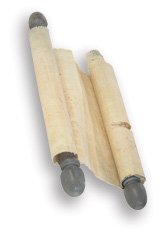 Vocabulary of the Levant
Vocabulary of the Levant
Levant: The Holy Land, the “Middle East,” the Ancient Near East
ANE: acronym used by scholars and archaeologists for “Ancient Near East”
Kohan / Kohanna: Priest / Priestess
Rab Kohan / Rabat Kohanat, Chief Priest , Chief Priestess also Arch-Priestor Arch-Priestess (what you will be called in the 3rd degree of our Order of Melchizedek)
Kohanim: Priest/ess/hood
Lewiyyim: Lew, Lewt (Oracular Priesthood, Oracle Priest, Oracle Priestess)
LÐewi, source of the Jewish name Levy or Levi, is a term of uncertain etymology. The meaning of lw´ (fem. lw´t) is “a person pledged for a debt or a vow,” therefore, someone consecrated to the temple. In Deuteronomy, it appears that the Lewiyyim are consulted (the Hebrew term implies a consultation with the divinity) concerning crimes and act as judges through their contact with the divine Ark of the Covenant, in some oracular form, as the text specifies that they will declare the judgment from a place which their god will choose. The Lewiyyim are also the official consultors of the will of their god through the ´urim and tummim, another divination device. But in an earlier text, the story of Micah and the Danites, the lÐewi is a mobile professional who moves from temple to temple, and who is necessary to consult the oracular devices. This entry was taken word for word from: http://www.geocities.com/SoHo/Lofts/2938/magic2workers.html
Go there and have a look at all the various vocabulary words, titles of priests and seers in Melchizedek’s time. Our Order of Melchizedek uses the seterms, Lew and Lewt, but we spell them Lev and Levt. We use the interpretation, “person consecrated to the Temple,” or Oracle, or God-Talker.You could also say the Leviyyim were mystics since they talked directly to God, and divinators since they used oracular devices. Traveling minister or simply Temple-Minister would apply, too. The Levites became the priesthood of ancient Israel. They were all supposed to be descendants of Aaron. In the Mormon church they have re-created (or attempted to)the two ancient priesthoods, calling them the Melchizedek and the Aaronic priesthoods. The Melchizedek priesthood is of higher rank than the Aaronic. We believe Aaron was an excellent high priest to his god,Yah or Yahweh, and shouldn’t be thought of as inferior to Melchizedek. Our Melchizedek priest/ess/hood has many things in common with the Aaronic or Levite priesthood, but we don’t sacrifice animals! Bread and wine is the key.
Sydik: Name of an ANE god, from whom the name Melchizedek sometimes spelled Melchisedek derives. (Melchi-Sydik). In this translation, Melchizedek would mean, “the God Sydik is my Ruler.” A fitting name for a High Priest of a God. For an intriguing discussion of this ancient Levantine God, Sydik, click here.
Osiris: Properly pronounced “Oh-sheer.” Resurrecting god of Egypt, spouse of the Great Goddess, Isis.
Baal: Phoenician / Canaanite god, this title simply means, “Lord.” He is a “pagan bad” god in the OT.
El: God. This is one of the earliest sounds used by the Hebrews for God. It means “High One” and is the syllable used in countless Hebrew first-names to denote “God” such as Michael, Rachel, Gabriel, Daniel,etc. Also place names, such as Bethel, meaning “House of God,” use the El syllable. In the book of Psalms whenever you see the word, “God”it should be El. King David always wrote his God’s name as El. Mohammed used the alternative spelling of this ancient Phoenician /Canaanite / Hebrew God, and turned it into Allah. The E and the A are interchangable, so that El was also Al. Al became Al-lah.
Click here for more about both Baal and El:
Salem: Peace. The original name of the city which the Hebrews later came to call Jerusalem. This is the city of which Melchizedek was King.
Moreh ha-Zadek: Teacher of righteousness. The word righteous and righteousness have become distracting from too much use making believers feel guilt. The original meaning was something along the lines of just,perfectly balanced, upright, forthright, just-ness and right-ness. Keep that in mind whenever you come across those words.
Yoreh ha-Zadek: One who pours out right-ness / just-ness, like judgement
Mashiah ha-Zadik Messiah or literally Anointed One of right-ness/ just-ness.
Ur: Ancient city in Sumeria, known for its powerful magi, located in what is now Iraq. Called Ur of the Chaldeans meaning Ur of the Magi or Wise men.
Avram: Abram, the guy who came from Ur and was later called Father Avraham, or Abraham
Ebiru: the Ebiru people became the Hebiru people and then our modern word, “Hebrew.”
Some words & definitions from Pantheon.org
Matteh: “Staff, rod”. Matte Elohim, “God’s staff”, was the miracle-working rod in the hands of Moses and Aaron. The word matteh derives from the ancient Egyptian madew, “royal staff, sceptre.”
Elohim: Hebrew: “God”. One of the names of God. It is the name used by the author of one of the sources of the Pentateuch (the first five books of the Bible).
Melchizedek: “King of Righteousness”, also called “King of Peace”. He is identified by some with the archangel Michael. Others say that he was an arch-priest as well as king of Salem. He blessed Abram (Genesis 14:18).
Tetragrammaton: Greek for “Four letters”. The four letters which compose the name of God. Traditionally the name is so sacred that it is never articulated and the letters YHWH are read in the text as Adonai or Ha-Shem. In English the tetragrammaton is sometimes pronounced as Jehova.
Ha-Shem: “The Name.” The term used when referring to God. Ha-Shem is used to avoid pronouncing the divine tetragrammaton when it appears in the Hebrew text. It is used in phrases such as ‘Barukh ha-Shem (Blessed be God). See also: Adonai.
Adonai: Hebrew word meaning “my lord, my master”, from adon, “lord,master”. From Hellenistic times onward it was used verbally to replace the written Yahweh. When the tetragrammaton (JHWH) appears in the Biblical text,it is usual to read it out load either as Adonai or as Ha-Shem (“The Name”).
Source(s): A Popular Dictionary of Judaism on Pantheon.org.
From SacredSource.com
Astarte: (from “Astarte” at SacredSource.com ) The Lady of the Beasts. Along with Lilith she is one of the principal Elohim (this Hebrew plural word means goddesses and gods, though translated as God by biblical revisionists for the past 2,000 years) of the Semites of Phoenicia. Consort to Baal , she is here depicted with two foals in ecstatic dance, her typically upraised arms grasping serpents. She was the Great Goddess, all-powerful,creating-preserving-destroying, an embodiment of Mother Nature. Also known as Ashtoroth, in some poses she is identical with images of Kali , while in her role of virgin she is an ancient prototype of Mary .
Asherah: from SacredSource .com. The original bread of life. Hebrew and Canaanite women molded loaves of this figure which were blessed and ritually eaten, the precursor of the communion wafer. Her idols were found under every green tree and were carved from living trees or erected as poles or pillars beside roadside altars. Crude clay images of her as tree of life later evolved into the more refined Syrian Artemis. Ancient sexual rites (dismissed to this day by male scholars as cult prostitution) associated with worship of Asherah insured that matrilineal descent patterns, with their partnership rather than dominator values, would continue. Hebrew priestly iconoclasts finally uprooted Asherah, supplanting matrifocal culture with patriarchy. Our Judeo-Christian inheritance of this law of the Levites, passed on by the Roman Empire, is one source of present-day sex inequality.
* * * * * *
Urim & Tummin: See pp 404, 405 in Lewis & Oliver’s book,_Angels A to Z_. The words Urim and tummin mean “illuminations” &”perfections.” They were known as Mesopotamian “tablets of destiny” and used to communicate with God and forsee the future. (are”tablets of destiny “possibly used like tarot cards?)
Judah: A tribe which later became a kingdom with Jerusalem as it’s capital. From this word, Judah, comes the term “Jew.”
Amorrhites: A name of doubtful origin and meaning, used to designate an ancient people often mentioned in the Old Testament. It is by many supposed to be derived from a word akin to the Hebrew ‘Amîr and to mean”mountaineers,” “highlanders;” but ‘Amîr is “summit”, not “mountain.” The name is much older than any part of the Bible and even much older than the Hebrew people itself; the attempt, then, to fix its meaning by Hebrew usage and the local habitation of the Amorrhites in Hebrew times can only be regarded as misdirected effort. That some of the Amorrhites, thousands of years after the name came to be used, dwelt in mountains can no longer be judged as serious proof that Amorrhite means highlander; its signification still remains obscure. It is worthy of note, nevertheless, that the Amorrhites of biblical and pre-biblical times have usually been found in mountainous districts, although those best known are the Amorrhites of the Jordan Valley,whose sway, however, extended to the mountains east of the Jordan.
Some ancient Egyptian words
The ancient Egyptian language was derived partly from semitic languages and partly from northern African languages. (semitic languages all come from SW Asia–Syria, Tigris-Euphrates valley, etc.)
Deshret = desert = “red land”
Kemet = “black land”
Senet = board game similar to backgammon
nome = one of 42 provinces of ancient Egypt called nomes and ruled each by a governor called a Nomarch. Originally their were only 14 provinces based on the sanctuaries of Osiris, a relic of his torn-up body was buried, entombed and enshrined in its own temple in each province. This brought fertility and his presence to each of the 14 regions.
Ptah = creator god of Memphis (near spot where Cairo sits) Creator of the Arts, oldest creator god in Egyptian civilization, first temples were built to him around 3100 BC which is when Egyptian civilization was born.
Sa = soul. The “soul,” sa, ha sa precise meaning. It is the wave nature, the flow of the breath, of the spirit, the khu. The Hebrew word “ruach,” breath or spirit, preserves this meaning. In Genesis, we are told that God’s breath, His “ruach,” moved across the waters of chaos to begin the process of creation. The sages of On would have agreed, saying that Re put forth his sa as he rose from the waters of Nun.
Selah = Rest, divine silence, No-thing, void
Study Questions:
Cut and paste the following questions, insert your answers, and email them to the Mystery School, with “AOM Postulant 3” in the subject line.
1. List some modern day countries that are part of the Levant.
2. Where have you seen the word Selah before? (hint: middle of the Old Testament)
3. Who was Avram, and who blessed him?
4. What’s the Hebrew name for the magikal staff Aaron carried?

